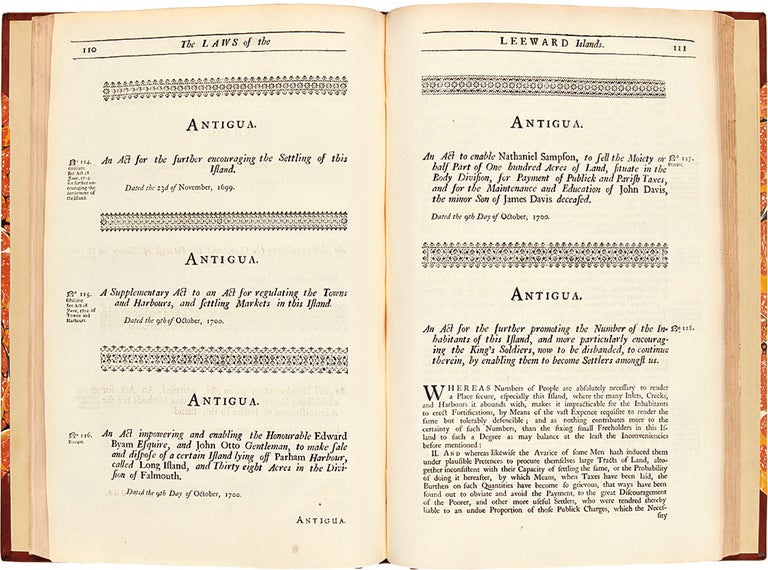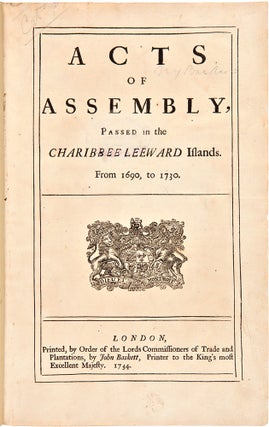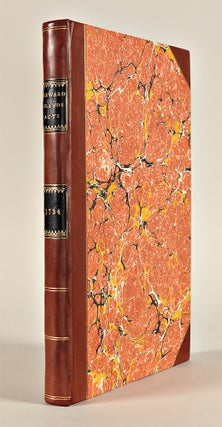[LEEWARD ISLANDS]
Acts of Assembly, Passed in the Charibbee Leeward Islands. from 1690, to 1730
London: John Baskett, 1734. Folio. (12 9/16 x 8 1/8 inches). 15, [1], 24, [4], 25-231, [1], [30] pp.
Modern half calf over marbled boards, spine ruled gilt with leather labels.
Rare compilation of the laws of the Leeward Islands, including the islands of Antigua, Barbuda, Montserrat, Nevis, St. Christopher, and the Virgin Islands.
The first collected printing of the laws for the Leeward Islands, comprising Antigua, Montserrat, Nevis, and the northern islands up to Puerto Rico in the Caribbean chain, and a primary source on the West Indies in the 18th century. Many of the present laws apply to Antigua. Colonized by the British in the mid-17th century, Antigua was the largest island in the Leeward Islands and the British colonial headquarters in that region. After consolidating their power over most of the Leeward Islands in the late-17th century, the British set about instituting a uniform code of laws. The American Revolutionary War would later cause a significant disruption in the sugar trade, and British sentiment against slavery further served to shift the economy of the islands in the late 18th century. Many of the laws in the present work date to as far back as the 1660s and '70s. The entirety of judicial, economic, and social life is covered, including laws governing servants and laborers, weights and measures, agriculture, trade, taxes for liquor's and sugars imported, and local militias. A number of acts address the issues of slavery and free Africans, such as "An Act for the trial of criminal slaves," passed in 1694, which levied harsh punishments for those found guilty of theft and other crimes. Also present in the work is an act against Jewish trade passed in 1694, and repealed in 1701. The original law was instituted because the Jewish community had engaged in trade with African slaves on the Christian Sabbath, but was probably passed on account of the commercial success by Jewish merchants in the sugar trade.
Beinecke Lesser Antilles Collection 163; European Americana 734/117; Sabin 12025, 10891; ESTC T146305; OCLC 13128040; c.f. Mordecai Arbell, The Jewish Nation of the Caribbean (2002), pp. 218-21; Natalie Zacek, Settler Society in the English Leeward Islands, 1670-1776 (2010), pp. 140-43.
Item #29153
Price: $3,200.00




